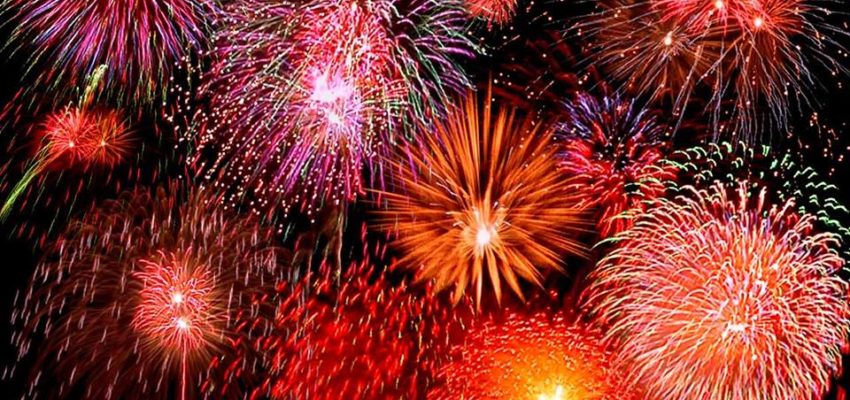Put Safety First this July 4th!

Fireworks are dangerous and can cause serious burn and eye injuries. According to the Consumer Product Safety Commission (CPSC), fireworks were involved in an estimated 10,500 injuries treated in U.S. hospital emergency departments in 2014. The National Fire Protection Association (NFPA) reports that sparklers caused 41% of fireworks injuries! Sparklers burn hot enough to cause third degree burns! Sparklers can quickly ignite clothing and many children have received burns from dropping sparklers on their feet. This graphic from the Fireworks Information Center at the CPSC demonstrates the most injured body parts.

The National Fire Protection Association (NFPA) reports that fireworks caused about 1,200 structure fires (not including outside fires). They are strongly opposed to any consumer use of fireworks. The NFPA states that four states have banned access by the public to all fireworks; Delaware, Massachusetts, New Jersey and New York.
Check out this video from the Alliance for Consumer Fireworks and National Fire Protection Association which highlights the dangers of consumer fireworks with a demonstration at the Massachusetts Fire Academy in Stow, MA.
Just because fireworks may be legal in your state, that doesn’t mean they’re safe. Fireworks are dangerous and unpredictable! According to the National Safety Council, the best safety tip is to leave the fireworks to the experts!
If fireworks are legal to buy where you live and you choose to use them, be sure to follow the following safety tips from the National Safety Council:
- Never allow children to handle fireworks
- Always have adult supervision when children are around fireworks
- Anyone using fireworks or standing nearby should wear protective eyewear
- Never light them indoors
- Only use them away from people, houses and flammable material
- Only light one device at a time and maintain a safe distance after lighting
- Never ignite devices in a container
- Do not try to re-light or handle malfunctioning fireworks
- Soak unused fireworks in water for a few hours before discarding
- Keep a bucket of water nearby to fully extinguish fireworks that don’t go off or in case of fire
The safest way to enjoy fireworks is to attend a public fireworks show put on by the professionals so grab a blanket and a patch of lawn, and let the experts handle the show.
And… don’t forget about your pets safety during this time! The American Humane Association reports that July 5 is the busiest day of the year for animal shelters! The day after the July 4th holiday, shelters are “inundated with pets that panicked at the noise of firecrackers and fled into the night, winding up lost, injured or killed.” Here are some safety tips from the American Veterinary Medication Association (AVMA):
- Leave your pets at home when you go to parties, fireworks displays, parades and other gatherings. Loud fireworks, unfamiliar places and crowds can all be very frightening to pets, and there’s great risk of pets becoming spooked and running away.
- Consider putting your pets in a safe, escape-proof room or crate during parties and fireworks.
- Keep horses and livestock in safely fenced areas and as far from the excitement and noise as possible.
- If you’re hosting guests, ask them to help keep an eye on your pets to make sure they don’t escape. Placing notes on exit doors and gates can help both you and your guests remain vigilant.
- Keep your pets inside if you or your neighbors are setting off fireworks.
- Keep sparklers, glow sticks, fireworks, charcoal and kabob skewers away from curious pets.
- Don’t let pets get near your barbecue grill while it is in use or still hot.
- Avoid the urge to feed your pets table scraps or other foods intended for people. Be especially careful to keep them away from these common foods that are actually toxic.
- Remember that too much sun and heat (and humidity!) can be dangerous to pets. Keep them inside when it’s extremely hot/humid; make sure they have access to shady spots and plenty of water when outdoors; don’t leave them outside for extended periods in hot weather; and know the signs that a pet may be overheating.
- Never leave your pet in your car when it’s warm outside. Vehicle interiors heat up much faster than the air around them, and even a short time in a locked car can be dangerous to pets.
- If you’re travelling out of town for the holiday, consider leaving your pets at home with a pet sitter or boarding them in a kennel. If you need to bring them with you, be sure you know how to keep them safe.
References:
http://www.cpsc.gov/safety-education/safety-education-centers/fireworks/ http://www.nsc.org/learn/safety-knowledge/Pages/news-and-resources-fireworks-safety.aspx?var=hp5
http://www.nfpa.org/public-education/by-topic/outdoors-and-seasonal/fireworks/alliance-to-stop-consumer-fireworks
https://www.avma.org/public/PetCare/Pages/July-4-Safety.aspx http://www.redcross.org/news/article/Red-Cross-Issues-Safety-Tips-For-4th-of-July-Holiday
Back to Blog
